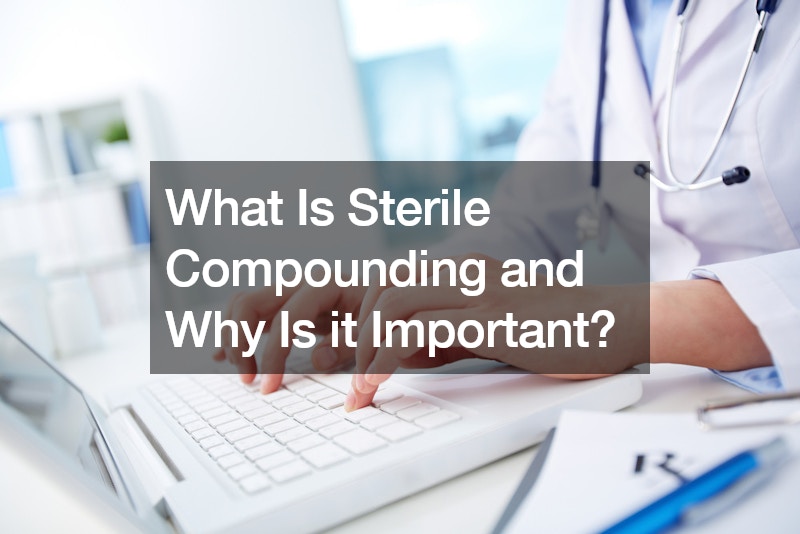What Is Sterile Compounding and Why Is it Important?


Sterile compounding is a specialized area of pharmacy practice that involves preparing medications in a controlled, sterile environment to prevent contamination and ensure patient safety. This practice is crucial for producing medications that are administered through injections, infusions, or other routes that bypass the body’s natural defenses, making them particularly vulnerable to infections.
Here’s an overview of what sterile compounding is and why it is so important.
Understanding Sterile Compounding
Sterile compounding refers to the process of preparing customized medications in a sterile environment to meet the specific needs of patients. This involves using aseptic techniques to prevent contamination by pathogens, particles, and pyrogens. The medications prepared through sterile compounding are typically administered via injection, intravenous (IV) infusion, eye drops, or inhalation. Because these routes of administration introduce medication directly into the body, maintaining sterility is paramount to avoid serious infections and complications.
The Importance of Sterile Compounding
Patient Safety
The primary reason sterile compounding is important is patient safety. Medications administered intravenously or through other sterile routes bypass the body’s natural barriers, such as the skin and the gastrointestinal tract, which typically filter out harmful contaminants. Any contamination in these medications can lead to severe infections, sepsis, or even death. Sterile compounding ensures that these medications are free from harmful bacteria, viruses, and other contaminants, significantly reducing the risk of infection.
Customized Medications
Sterile compounding allows for the creation of customized medications tailored to the specific needs of individual patients. This is particularly important for patients who require unique dosages, have allergies to certain preservatives or additives, or need medications that are not commercially available. By providing customized solutions, sterile compounding helps ensure that patients receive the most effective treatment for their conditions.
Quality Control
The process of sterile compounding involves stringent quality control measures to ensure the safety and efficacy of the medications produced. This includes using cleanrooms with controlled environments, specialized equipment, and rigorous testing of the final products for sterility and potency. These quality control measures are essential for maintaining high standards in medication preparation and ensuring that patients receive safe and effective treatments.
Regulatory Compliance
Pharmacies that perform sterile compounding must adhere to strict regulatory guidelines set forth by organizations such as the United States Pharmacopeia (USP) and the Food and Drug Administration (FDA). These guidelines are designed to ensure that compounded medications are prepared in a manner that meets the highest standards of safety and quality. Compliance with these regulations is critical for maintaining the integrity of the compounding process and protecting patient health.
.
